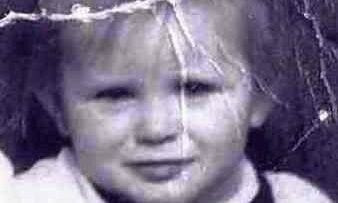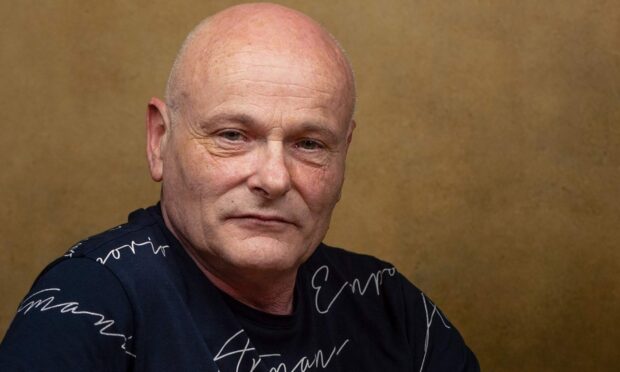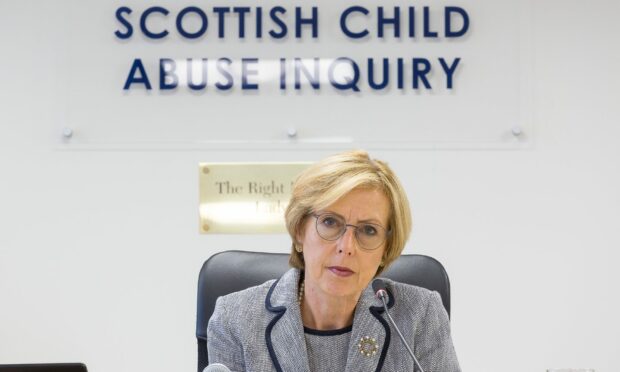The brother of tragic toddler Alexina Kelbie is demanding a public apology and substantial damages.
Peter Kelbie, originally from Aberdeenshire, spoke out after the 1960 death of his two-year-old sister was raised at the Scottish Child Abuse Inquiry last week.
She suffered a head injury at her foster home in Dundee’s Fintry Road which was initially claimed to have been self-inflicted.
Mr Kelbie, who also said he was abused while in care in Aberdeenshire as a child, has been fighting for answers explaining what happened to Alexina for several decades.
They must make a public apology so that Alexina’s family, our family, in America and in London and in Aberdeen and in Dundee, should be able to see it and read it.
– Peter Kelbie
Police Scotland finally apologised to him last year after they admitted they had not alerted him to new evidence which emerged in 2006.
A Dundee University expert had re-examined post-mortem photographs and found evidence suggesting the toddler had been assaulted.
Glyn Lloyd, head of the children’s service at Dundee City Council, was asked about the child’s death on November 10 while giving evidence to the inquiry, which is chaired by Lady Smith.
He said the local authority could find no files relating to Alexina’s care, and confirmed that no apology had ever been offered to the family.
‘They should make a statement’
Following the inquiry hearing, Mr Kelbie told us: “They should make a statement about baby Alexina’s death.
“If they are going to make an apology it should not come to me.
“They must make a public apology so that Alexina’s family, our family, in America and in London and in Aberdeen and in Dundee, should be able to see it and read it.
“It must be public otherwise it will mean nothing. There is no point coming directly to me anymore. I’m too emotionally hurt.”
Mr Kelbie also believed the family should be offered compensation from the council.
It has previously been reported that he rejected a £25,000 compensation offer from Police Scotland.
Compensation
“We’re dealing with substantial damages. Because I take into account that for the last 60 years my family have spent a lot of money trying to find the truth surrounding Alexina’s death,” he said.
“They should be held to account.”
Mr Kelbie only learned of Alexina’s existence and death in 1983 when he was reunited with his other birth sisters in London.
A local authority spokesman said: “Dundee City Council has taken part in the Scottish Child Abuse Inquiry and value the important work they are carrying out.
“We await the final report with interest.
“The council is keen that lessons from the past in the city and across Scotland can help to inform better protection for children going forward.”
Mr Kelbie pushed for reviews into the police investigation in 1988 and 1993 but it was decided the death had been fully investigated.
However, in 2006 Mr Kelbie asked to see the police files from 1960, prompting another investigation.
This time a detective found post-mortem photographs of Alexina which showed her body was covered in bruises and other injuries, including a bite mark.
Officers traced the photographs back to Sergeant John Underwood, who said at the time he was unhappy with the suggestion Alexina’s injuries were self-inflicted.
Pathologist Professor Derrick Pounder from Dundee University reviewed the photographs, however, his findings were not disclosed to the Kelbie family at the time.
In the letter of apology to Mr Kelbie, Police Scotland said Professor Pounder’s report highlighted Alexina’s body had “multiple bruises and abrasions to the face, neck, upper chest and legs” and the injuries could not be explained as being caused by a simple fall.
He also noted the injuries to her head and neck were “particularly prominent”, she had blood in her mouth, and a bite mark on her left leg.
The letter added: “A policy note was compiled in respect of the review and the decision was made not to inform yourself or your family of Professor Pounder’s findings or the existence of the photographs.
“Again due to me not having all information available to me I am unable to ascertain the reason for this information not being conveyed to you.
“I would like to offer you my sincerest apologies for the distress this has caused you and your family.”



